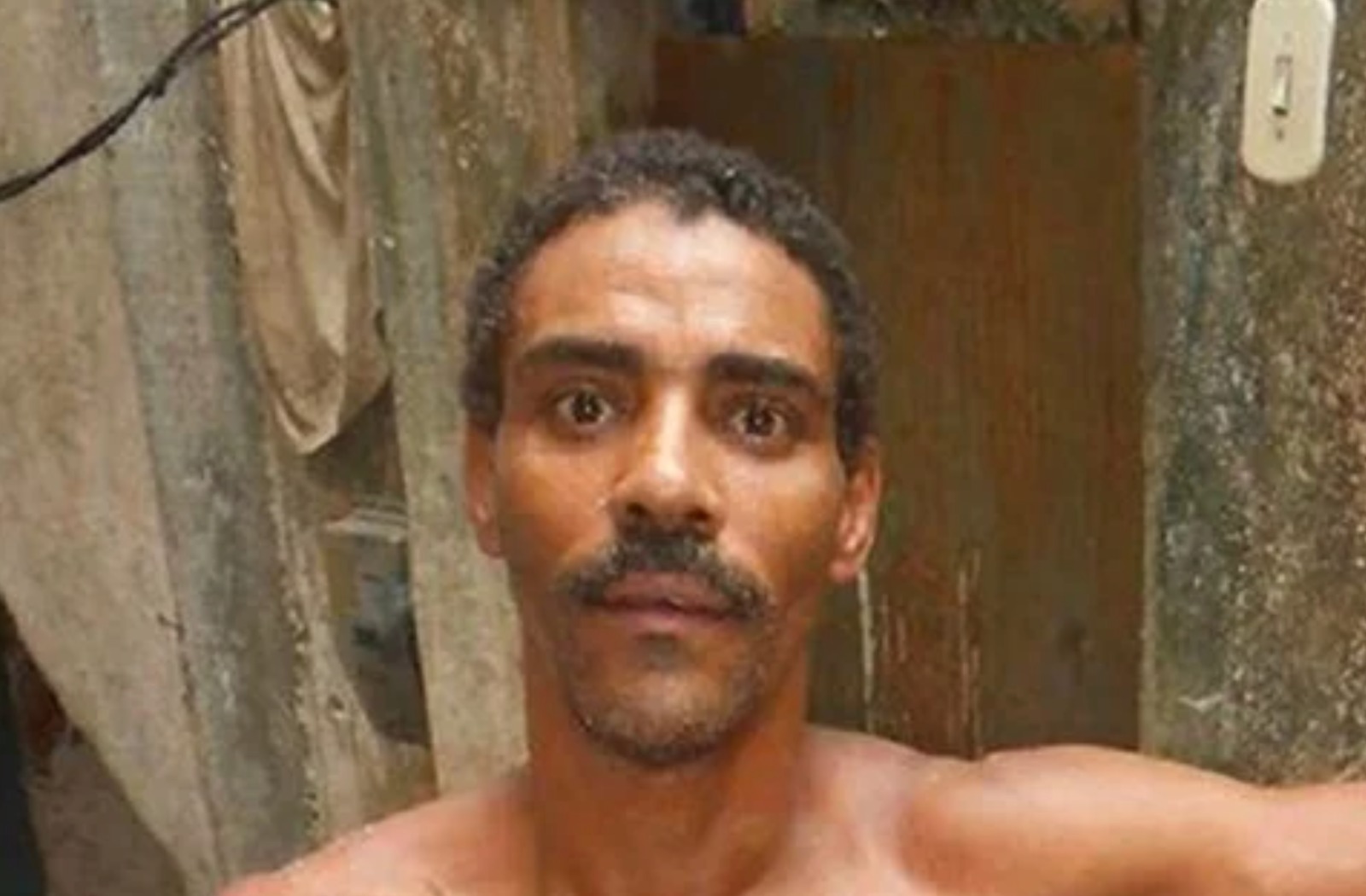
For the original article by Igor Soares and Rodrigo Silva published in Fala Roça, click here. RioOnWatch translated this article to update our English-speaking audience on a critical story we covered during the original tragedy in 2013. Amarildo de Souza’s disappearance marked the first time favela organizers, strategically using social media, were able to catapult police violence in their communities to national and global attention, forcing an investigation by Brazil’s authorities.
Amarildo de Souza, a Rocinha resident and assistant bricklayer, was killed by officers from the Pacifying Police Unit (UPP) in 2013. This year marks 11 years since his disappearance and death.
According to City Councilwoman Mônica Cunha (PSOL), Rio de Janeiro Mayor Eduardo Paes vetoed Municipal Bill 2556/2023, which proposed renaming Rua 2 (Street #2), located at the top of the Rocinha favela, to Rua Amarildo de Souza (Amarildo de Souza Street). The proposal had been approved by City Council on October 10. The name change was intended as a tribute to Amarildo, a Rocinha resident and assistant bricklayer who was killed by officers from the Pacifying Police Unit (UPP) in 2013. July 14 of this year marked the 11th anniversary of his disappearance and death.
The law passed following a second round of discussions, after over a year of debate by the City Council. A few months ago, Amarildo’s family launched a digital campaign advocating for the bill’s advancement and approval. The bill was envisioned by City Councilor Monica Cunha.
On X (formerly Twitter), the councilwoman criticized the mayor’s rejection of the project to rename the street. “During Brazilian Black Awareness Month [in November], the Rio de Janeiro City Council passed Bill 2556/2023 naming a street in Rocinha after Amarildo de Souza. A father, son, brother, and uncle, Amarildo de Souza became internationally known as a victim of armed violence. He was kidnapped, tortured, killed, and disappeared,” she began. “This is about ensuring the right to justice, truth, and reparation. But it’s also about stopping the endless counting of bodies and ensuring that this will not happen again! On Tuesday, I paid tribute to the victims of police operations in Maré and Lins. Last week, I marked the memory of the condemnation of the Brazilian State,” she added. The councilwoman expressed her opposition to Paes’ veto. “We cannot accept the normalization of daily deaths. We need to preserve memory, stand against barbarity, and build a reality where such grave violations do not happen again. I strongly condemn Mayor Eduardo Paes’ veto! We will continue fighting for memory, truth, justice, reparation, and the assurance that this will not be repeated,” she concluded.
In the official statement sent to the City Council, the mayor argued that urban planning falls under the jurisdiction of the executive branch, not the legislative branch. “Laws concerning municipal policies, plans, programs, and sectoral development are the responsibility of the mayor,” he stated. According to the document, he further noted that “the street was officially recognized as ‘Rua Dois da Rocinha’ by Decree 36,708 of January 10, 2013, with the participation of residents in the name selection process, as per administrative procedure 02/200,097/2012.
He concluded by calling the change unconstitutional. “In light of the reasons I have outlined, I am compelled to veto Bill 2556 of 2023 in its entirety due to its unconstitutionality and legal flaws.”
The Amarildo Case
Born and raised in Rocinha’s Rua 2, in the upper part of the hill, Amarildo was unjustly detained in July 2013 following a police operation. On the night of July 14, he was stopped and taken by Military Police officers while returning home from fishing. According to the police’s account, the officers mistook him for a wanted drug dealer.
Three years later, 12 of the 25 military police officers charged in the Amarildo case were convicted, while four were acquitted in 2019. Last year, the Sixth Panel of the Superior Court of Justice (STJ) increased the sentences of the officers convicted for the disappearance and death of the construction worker.
